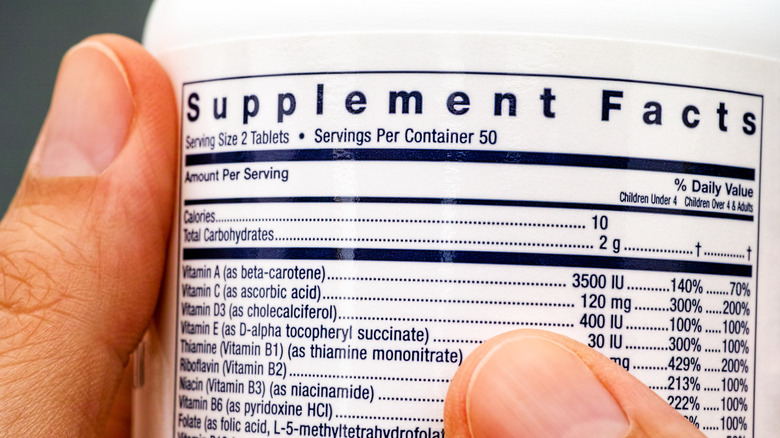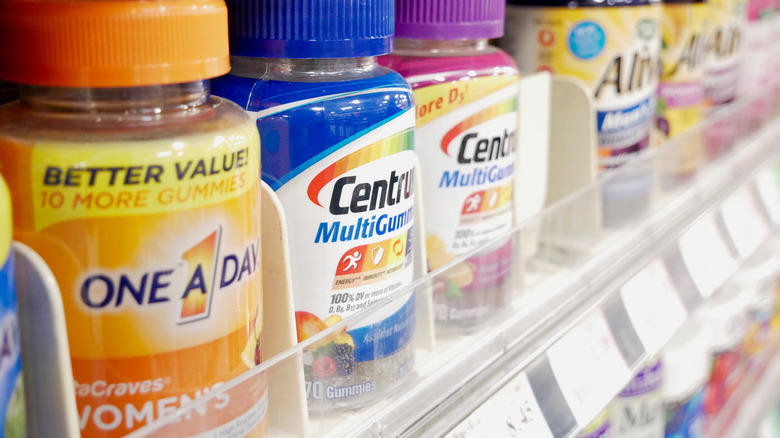The Red Flag To Watch Out For In A Multivitamin Label
Taking a multivitamin every day is an important part of a balanced, healthy lifestyle. While they can't replace a well-balanced diet, they can help fill in nutritional gaps that aren't filled in by what you eat, according to the Harvard T.H. Chan School of Public Health. It seems like the importance of multivitamins is understood by most adults, with almost half of adults in the United States and 70% of older adults (71+ years old) taking a daily multivitamin.
However, with so many brands, jargon, and nutritional terms, it can be difficult to know what to look for when choosing a multivitamin. Thankfully, 1 thing is clear: you don't need to buy expensive, brand-name vitamins. What is most important is what is on the label — some of the higher-priced brands may include more fillers than the actual ingredients, according to LiveStrong. That being said, there is 1 other red flag to watch out for when reading a multivitamin label.
Avoid multivitamins with terms like 'pharmaceutical-grade'
There is a myth surrounding multivitamins, claiming they are unregulated by the U.S. Food and Drug Administration (FDA), the governmental body that sets regulations and standards for food, drugs, and other biological products. However, this couldn't be further from the truth. Dietary supplements, including multivitamins, are regulated the same as food, according to the FDA.
However, this persistent myth has been taken advantage of by multivitamin companies. These brands put terms on product labels to seem more potent and official, such as "pharmaceutical-grade." Claims like this are disingenuous at best, according to MindBodyGreen Health. The FDA regulates dietary supplements as food, rather than pharmaceutical drugs. Food and drugs have their own regulations and standards to follow. If a brand claims any "pharmaceutical" advantage to its product, it's best to stay away. Other terms to keep an eye out for are "pharmacist-recommended," "doctor-formulated," "guaranteed quality," and "comprehensive." All of these terms may not mean anything unless the brand has backed up those claims with verified information, explains Healthline.


